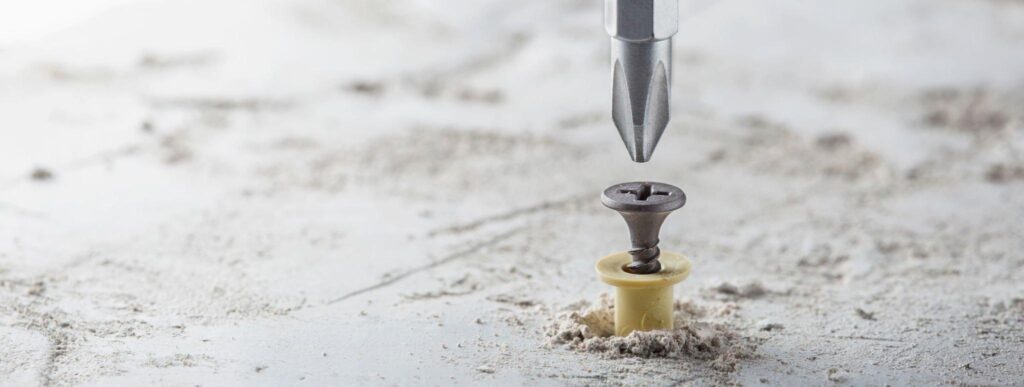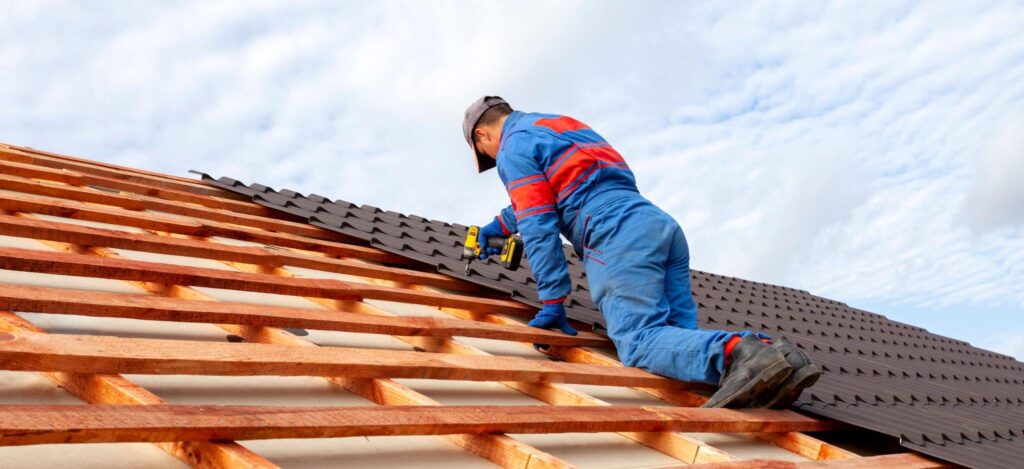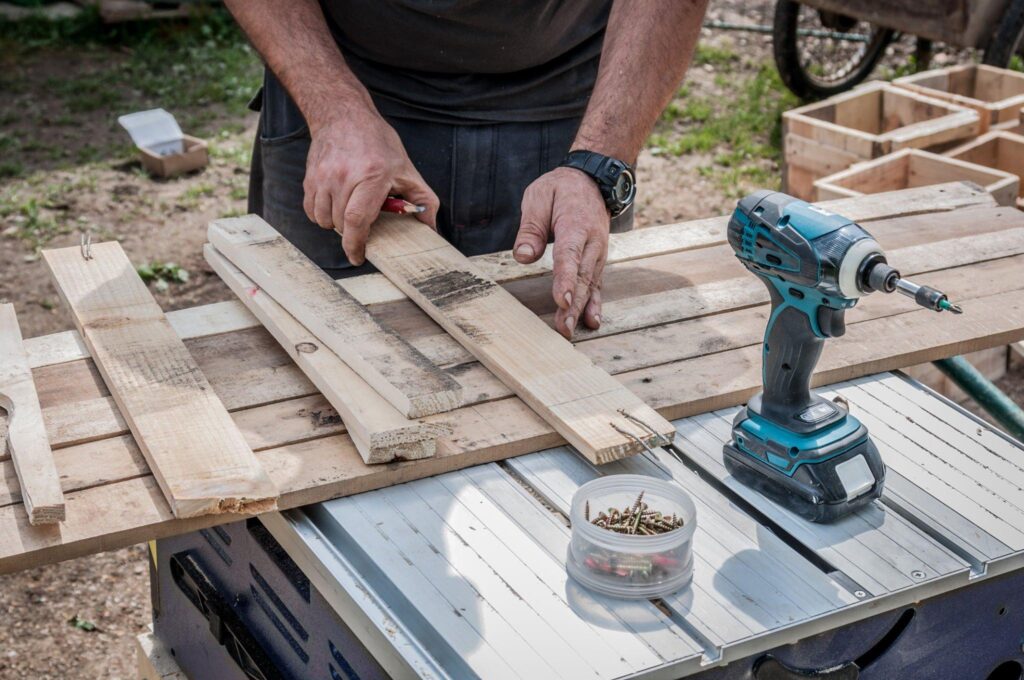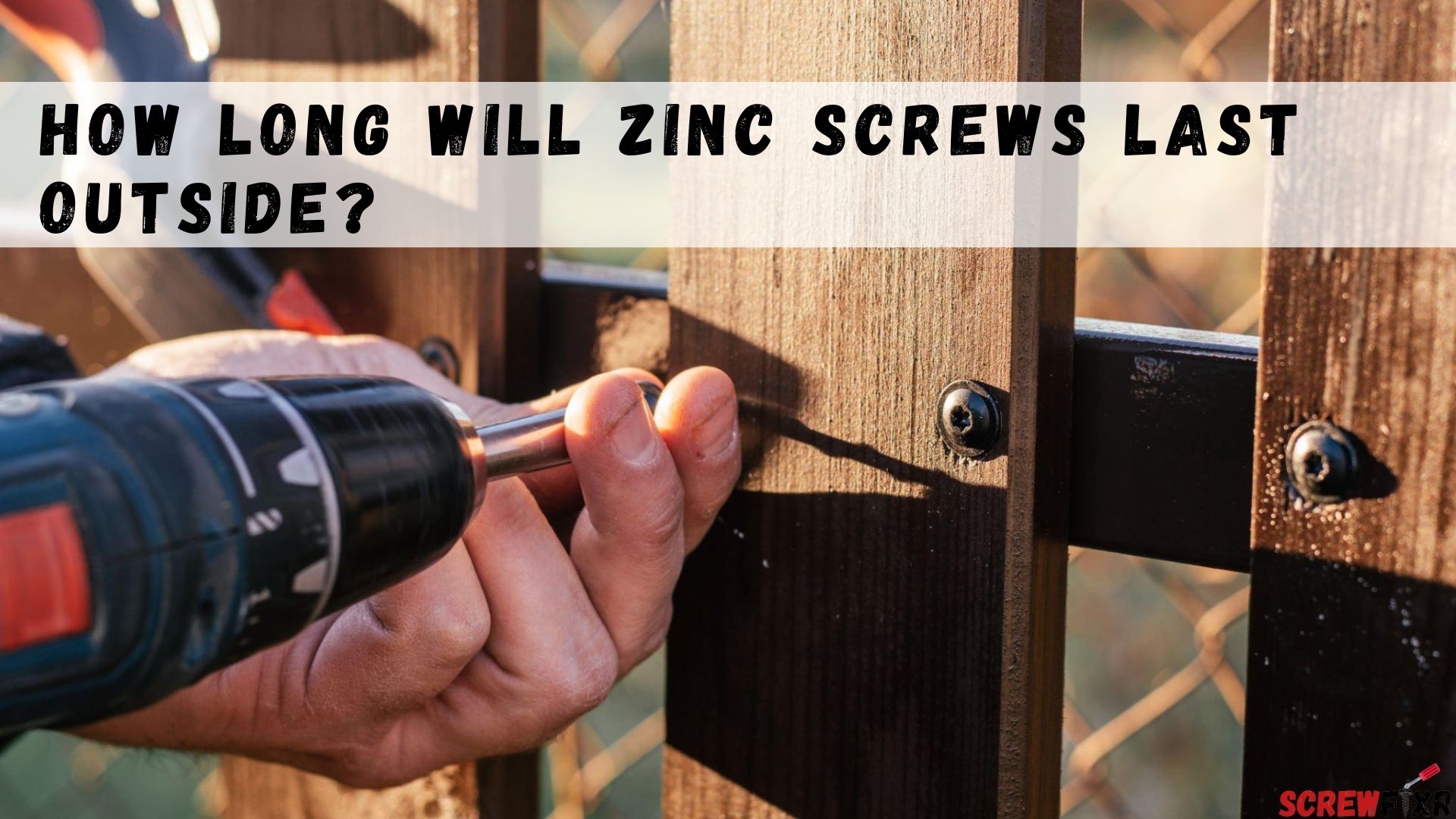Zinc screws are a popular choice for outdoor construction and woodworking projects due to their corrosion-resistant properties. But how long do they actually last when exposed to the elements? Factors such as the quality of the zinc coating, environmental conditions, and the type of material the screws are made of can all impact the lifetime of zinc screws.
Here, we’ll investigate how long will zinc screws last outside and offer suggestions for extending the life of your screws.
Understanding How long will zinc screws last outside?
The lifetime of zinc screws in outdoor environments can vary greatly depending on the specific conditions they are exposed to. On average, it can last between 5-10 years when exposed to typical outdoor elements such as moisture, temperature fluctuations, and UV radiation. With proper maintenance and use in optimal environments, they can last longer, up to 20-30 years. It’s important to keep in mind that these are approximate estimates and the actual lifetime of the screws will depend on the specific conditions they are exposed to.
Factors Affecting the Lifespan of Zinc Screws

Environmental factors play a significant role in the lifespan of zinc screws
- Exposure to moisture can cause the zinc coating to deteriorate over time, leading to rust and corrosion. This is why it is important to ensure that zinc screws are properly sealed and protected from moisture when used in outdoor environments.
- Temperature fluctuations can also affect their lifetime of them. Extreme heat or cold can cause the zinc coating to crack or peel, which can lead to rust and corrosion.
- UV radiation can also have an impact on the lifetime of zinc screws. The constant exposure to sunlight can cause the zinc coating to fade or discolor over time, which can make the screws more susceptible to rust and corrosion.
The quality of the zinc coating is another important factor that affects the zinc screws
- The thickness of the coating is important as it determines how much zinc is protecting the screw from rust and corrosion. Generally, a thicker coating will provide better protection and a longer lifetime for the screws.
- The type of zinc coating is also important. Hot-dip galvanized zinc screws have a thicker and more durable coating compared to electro-galvanized zinc screws. This can make them more suitable for use in outdoor environments.
The type of wood or material the screws are being used on can also affect the lifespan of zinc screws
- The durability of the wood or material can determine how well the screws will hold up over time. Hardwoods, for example, are generally more durable than softwoods and may be better suited for outdoor use.
- Chemical interactions between the wood or material and the zinc coating can also affect the lifetime of the screws. Certain chemicals, such as acids or salts, can break down the zinc coating and cause rust and corrosion. It’s important to consider the type of material the screws will be used on and any potential chemical interactions that may occur.
Read Also: Why Do Screw Heads Break Off?
Average Lifespan of Zinc Screws in Outdoor Environments

There are several factors to consider when estimating the durability of zinc screws in outdoor environments. These include the quality of the zinc coating, the exposure to moisture and UV radiation, and the type of wood or material the screws are being used on.
The average lifetime of zinc screws in outdoor environments can vary based on the specific conditions they are exposed to. For example:
- Under ideal conditions, with a thick, high-quality zinc coating and minimal exposure to moisture, UV radiation, and harsh chemicals, they can last for several decades.
- In environments with high humidity and exposure to saltwater, the durability of zinc screws may be significantly shorter, with the potential for rust and corrosion to occur within a few years.
- In areas with extreme temperatures and constant exposure to UV radiation, the lifetime of zinc screws may also be shortened, with the zinc coating potentially cracking or peeling within a few years.
It’s important to keep in mind that these are estimates and the actual lifetime of the screws will depend on the specific conditions they are exposed to.
It is important to note that while zinc coating can prolong the life of the screws, it is not a guarantee against rust and corrosion, and regular inspections and maintenance should be done in order to extend the lifetime of zinc screws in outdoor environments.
FAQ About Zinc Screws for Outdoor

Can zinc screws be used outside?
Yes, zinc screws can be used outside. They are coated with a layer of zinc that provides a barrier against corrosion and rust, making them suitable for use in outdoor environments.
What kind of screws won’t rust outside?
Screws made of stainless steel, aluminum, or other corrosion-resistant materials are less likely to rust when used outside. Also, screws that are coated with a protective layer, such as zinc screws, can also resist rust in outdoor environments.
Are zinc screws durable?
Zinc screws can be durable when used in appropriate environments and when maintained properly. The quality of the zinc coating and the type of wood or material the screws are used on can affect their durability.
Tips and Tricks that can be used to increase the lifespan of zinc screws in outdoor environments
- Use high-quality zinc screws: Invest in screws that have a thick, high-quality zinc coating. This will provide better protection against rust and corrosion.
- Properly seal and protect the screws: To prevent moisture from penetrating the zinc coating, it’s important to seal the screws with a waterproof sealant or paint. This will help to prevent rust and corrosion.
- Inspect and maintain the screws regularly: Regularly inspecting the screws for signs of rust or corrosion, and taking action to address any issues that are found, can help to extend the life of the screws.
- Use screws that are appropriate for the environment: Consider the specific environmental conditions in which the screws will be used and select screws that are designed to withstand those conditions. For example, if the screws will be used in a coastal area with high humidity and exposure to saltwater, choose screws that are specifically designed for marine environments.
- Use them in conjunction with other corrosion-resistant materials: Use zinc screws with other corrosion-resistant materials such as aluminum or stainless steel. This will provide an extra layer of protection against rust and corrosion.
- Avoid using them in harsh chemical environments: When zinc screws are used in environments where they will be exposed to harsh chemicals, such as acids or salts, the zinc coating can be broken down, which can lead to rust and corrosion. It’s important to consider the potential chemical interactions that may occur when selecting screws for a specific application.
Final word
Now you understand how long will zinc screws last outside? Zinc screws are popular for outdoor use due to their corrosion resistance, but they can vary. Proper maintenance and use in optimal conditions can extend their lifetime up to 20–30 years. Regular inspections and maintenance, including protection and sealing, are crucial to extending the lifetime of zinc screws in outdoor environments.
You May Also Like:


